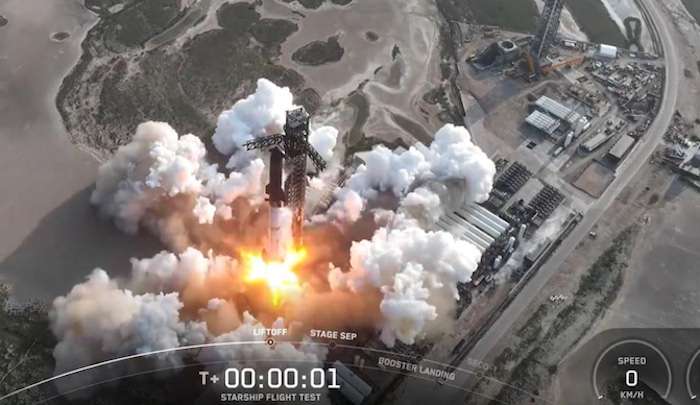SpaceX's Starship rocket launched from the Starbase launch pad in Texas on May 28, but about half an hour later, it veered off course and lost control, failing to complete several key tests. This has become another technical challenge for Elon Musk's ambitious plan to send humans to Mars.
During this test, the 122-meter rocket system passed the stage where the previous two launches ended in explosions, scattering debris over the Caribbean islands and forcing dozens of planes to change their flight paths.
This was the ninth full test of the Starship rocket since April 2023. The lower part of the rocket, a nearly 70-meter booster, was also used in one of the previous launches. However, SpaceX soon lost contact with the booster, which eventually fell into the ocean, failing to make the planned controlled landing.
The upper part of the rocket continued its flight, ascending into lower space, but after about 30 minutes, it began to spin out of control. The flight was scheduled to launch eight experimental Starlink satellites, but their launch mechanism failed, and the operation was canceled.
Although this launch improved over previous ones, the result was another technical failure.




















